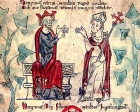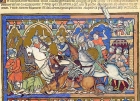Planning
Planning at A level takes several forms. Awarding bodies offer quite different specifications, and choices within these specifications. However, there are also strict requirements common to all, including the teaching of material that covers a minimum of 200 years and the teaching of British history. The decision about which specification and which topics to teach will require consultation, careful attention to the resources available, and a clear timetable for implementation. There are then decisions to be made, some of them in consultation with senior leadership, about AS and A Level, and the scheduling and balance of time given to the different components of the specification. Individual teachers will need to plan to teach the topics in ways that enable their students to meet the assessment criteria and develop their historical thinking. In this section you will find helpful articles, guides and resources to enable you to plan your A Level teaching.
-

It’s just reading, right? Exploring how Year 12 students approach sources
ArticleClick to view -

Triumphs Show 182: A public lecture series
ArticleClick to view -

Why does anyone do anything? Attempts to improve agentive explanations with Year 12
ArticleClick to view -

Cunning Plan 175: Using the England's Immigrants database
ArticleClick to view -

Allowing A-level students to choose their own coursework focus
ArticleClick to view -

New, Novice or Nervous? 172: Curriculum planning
ArticleClick to view -

Couching counterfactuals in knowledge when explaining the Salem witch trials with Year 13
ArticleClick to view -

Polychronicon 170: The Becket Dispute
ArticleClick to view -

'I feel if I say this in my essay it’s not going to be as strong’
ArticleClick to view -

‘If you had told me before that these students were Russians, I would not have believed it’
ArticleClick to view -

Polychronicon 166: The ‘new’ historiography of the Cold War
ArticleClick to view -

Teaching, learning and sharing medieval history for all
ArticleClick to view -

'Victims of history': Challenging students’ perceptions of women in history
ArticleClick to view -

Triumphs Show 164: interpretations at A Level
ArticleClick to view -

Cunning Plan 163.2: Developing an A-level course in medieval history
ArticleClick to view -

Using nominalisation to develop written causal arguments
ArticleClick to view -

Using databases to explore the real depth in the data
ArticleClick to view -

The Harkness Method: achieving higher-order thinking with sixth-form
ArticleClick to view -

What made your essay successful? I ‘T.A.C.K.L.E.D' the essay question!
ArticleClick to view -

Developing transferable knowledge at A-level
ArticleClick to view

